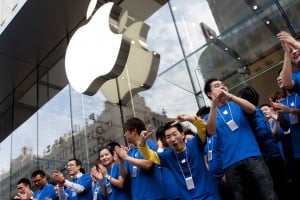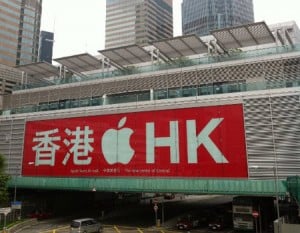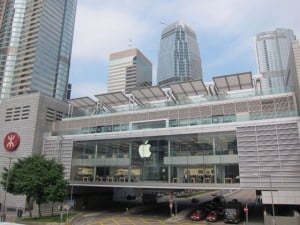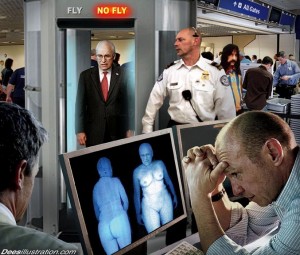
Throughout this quarter, I have learned how firms keep their OM decision areas in line with their completive strategy. That reminds me a firm from global market and it shows us how they do business in other countries. This is an example from an IT legend-Apple.

On September 26th in 2011, Apple opens its first retail stores in Hong Kong and Shanghai. Apple realized that Taiwan, Mainland China and Hong Kong are the great market which has a lot of opportunities to expand Apple businesses. Because in Hong Kong, people have vey high demand of smart phones such as iPhone and most Hong Kong people like the Apple products as much as Americans do. However, there were no any Apple retail stores, so people can only buy the Apple products from other local retailers or online stores. Since Apple has slowed the pace of large-store opening in China because there are too many copycats’ stores in the region. Apple also found some fake retail stores in China, but those stores are still cannot impact the sales of Apple.

However, Apple has competitor such like Sony Ericsson, Samsung are the tough for Apple since they already have large market share in mainland China. Even though Apple is a very large company in the global market; they still struggle to expand their businesses in other countries where have too many competitors. In the economic environment, since the Apple retail stores open in Hong Kong, it affects the resellers businesses. It is because the Apple retail store is too powerful in the market. Therefore, the small businesses may be bankrupt because of the new Apple retail stores opened. Nowadays, Apple is one of the well-known and successful companies in the global market; they created many new products which people would follow their idea to develop their businesses. Apple is an example of licensing strategy. They are using the resources from Hong Kong and China such as human resources; Apple established the factories to produce Apple products in China. Moreover, in the sociocultural environment, Apple has a successful strategy to cater for the Hong Kong culture. Hong Kong people require higher demand of great quality services and problem solving efficiency. Thus, Apple provides fast respond for customers’ problems and quality warranty for any Apple products. The strategy of Apple reflected that they have a great sense of Hong Kong culture. In the economic environment, Hong Kong and Shanghai are the developed cities; there have a lot of opportunities for foreign companies. Since there have intense competitions, foreign companies have to face risks and challenges, but they still stand to reap huge benefits in the future. Apple is the one of the big company that wants to reap the benefits from China market.

If you are an operation manager of a famous firm, how could you expand the business in global market? What issue should you concern about? And what competitive strategy will you apply to the global market but except develops the location/competitive strategy, design of goods and services, supply-chain management and managing the quality of products, what else?
Source: The Wall Street Journal by Jason Chow, September 26, 2011
http://online.wsj.com/article/SB10001424053111903703604576588351297817510.html




